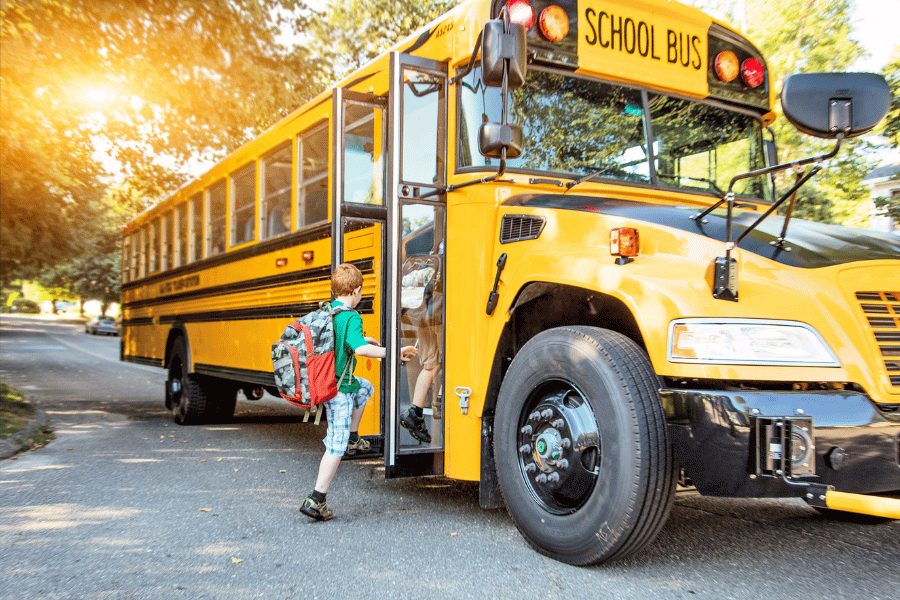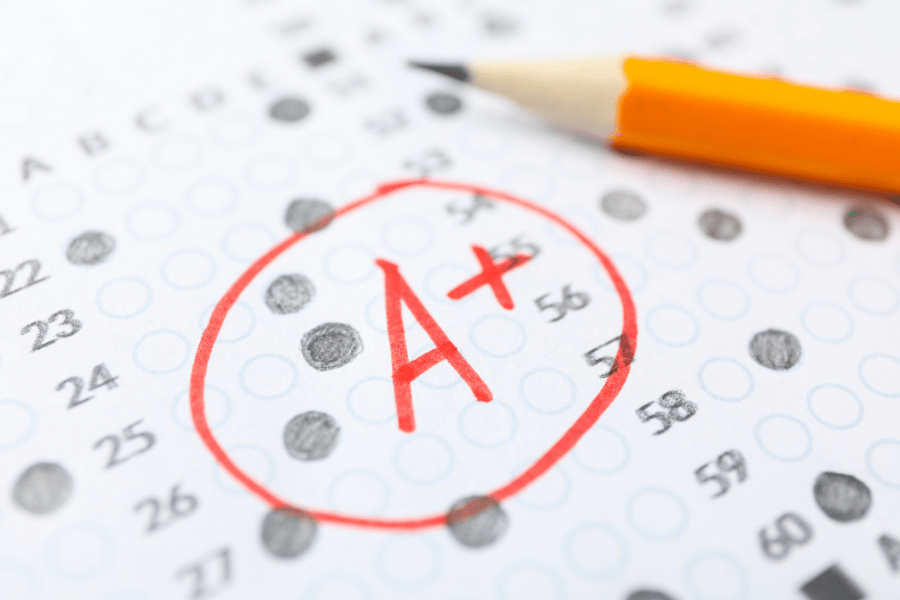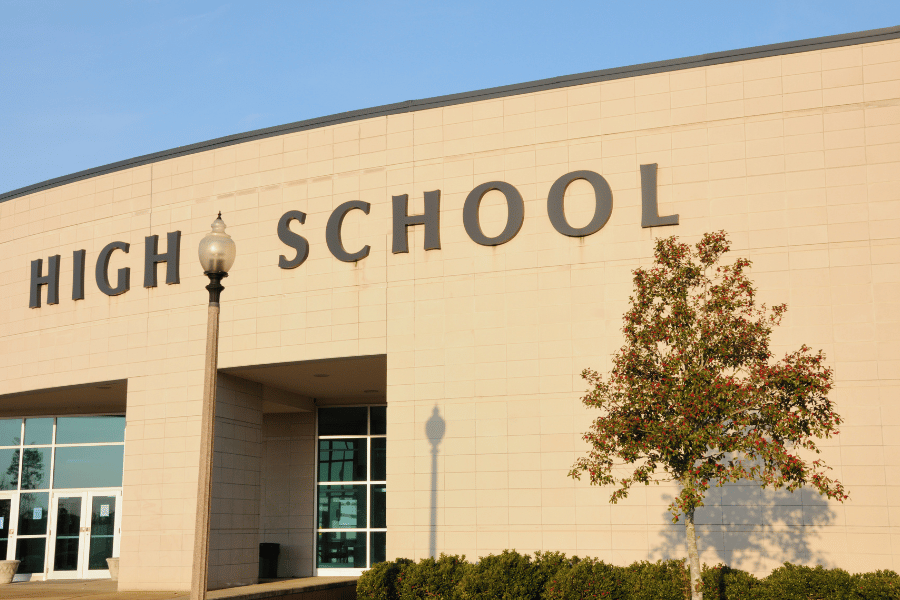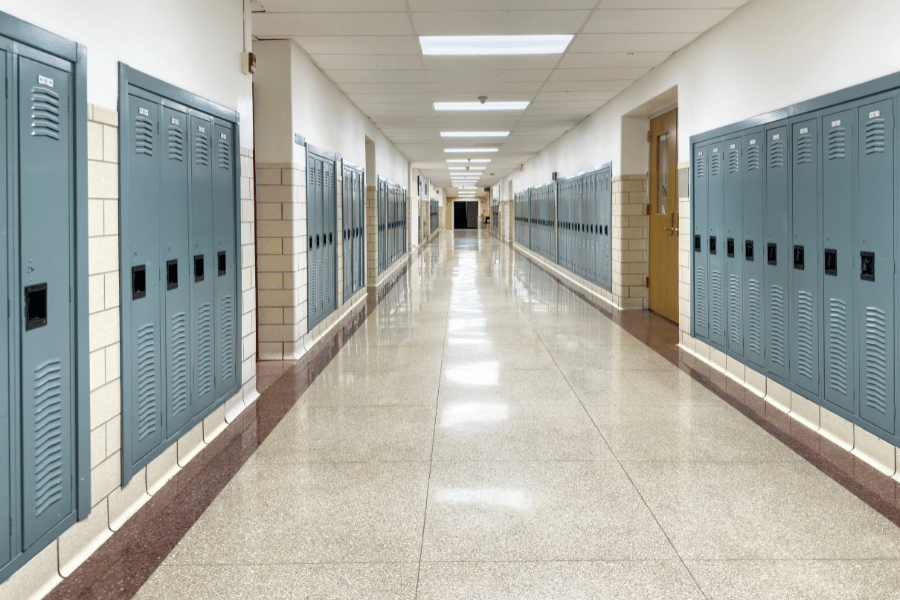10 Takeaways: How Schools Impact Home Values

How Schools Affect Home Values
What type of impact can schools have on property values?
When buying a home, one of the most common questions is, 'How do good or bad schools affect home values, and what type of impact do they have?'
Schools are so important to some of our buyers that we have given each school district its own page on our website, allowing buyers to search for homes by school district. Fortunately, the Raleigh area has some of the best schools in the state, which is why so many folks moving to North Carolina end up in Raleigh.
Countless factors influence the decision to buy a home. The neighborhood, size of the home, outdoor space, upgrades, and location play a significant role in impacting one's decision-making. Among those important factors, school districts have played an increasingly significant role in influencing buyers' decision-making around purchasing a home.
Although those most interested in strong school districts tend to be families with young children or those planning on having children in the future, purchasing a home in a solid school district is beneficial for those who do not plan on having children as well.
In this article, we'll dive into how school districts impact property values, how buyers can research school districts before purchasing a home, and the difference in home values when buying in a high-performing school district vs. a lower-performing district.
Chapters
1. How Do Schools Affect Property Values?
Economists have estimated that a five percent improvement in test scores in suburban neighborhoods can raise home prices by 2.5 percent, according to The New York Times. Of course, test scores are only one way of designating an area as a "good school district," other factors should also be considered, but test scores are a highly quotable measure.
Many buyers considering buying a home in an affluent school district may be willing to spend more on a home to avoid the monumental cost of a private school, which can be as high as $20,000 or more per year in some areas. Although purchasing a home in a strong school district may mean paying a higher price for that home, it is still sometimes cheaper than investing in the costly expense of a private school.
Sellers aware of this trend may get away with selling their homes above market value because they know many buyers are willing to pay a premium to be in certain school districts. When enough homes sell above market value in an area, the value of all homes rises, thereby impacting home values.
Of course, these statistics only apply to those who put their children in public school. Those who plan on putting their children in private schools will most likely place less emphasis on the quality of the school district and will spend more time considering the private school itself. That said, those who live close to highly regarded private schools can typically command higher home values due to their proximity to the private school.

2. How do Good Schools and Bad Schools Impact Home Values?
A study conducted by the Brookings Institution found that home values tend to be higher in areas where high-scoring schools are located. After researching one hundred of the largest metro areas in the United States, the study found an average difference of $205,000 in home prices between houses in high-performing and low-performing school districts.
Many homes located near high-performing schools were also larger and had increased demand, with 1.5 more rooms than homes in lower-performing school districts. Interestingly, rental options were also found to be around thirty percent lower in volume in high-performing school districts. Knowing this, it is safe to say that those living in good school districts will pay a considerable amount to reside there.
3. What's the Relationship Between Public School Ratings and Property Values?
According to the National Bureau of Economic Research, there is a strong correlation between school expenditures and home values. A report titled "School Spending Raises Property Values" found that for every dollar spent on public schools in an area, home values increased by $20.
These findings indicate that additional school expenditures benefit all homeowners in the community, whether those residents have children in the public school system or not.
4. Does a New School Increase My Home Value?
According to a study published in the Economics of Education Review, students tend to score lower on testing in the first few years after a new school is built or renovated. This is primarily because new schools typically require additional construction projects while school is in session, distracting students.
However, after all construction is complete and students are no longer being disrupted, the study found that student test scores returned to what they were before construction. The students also seemed to benefit from the improvements made to the school over the long term.
If your home is located in a district with a school currently undergoing construction and test scores have been negatively impacted, it may be better to hold off on selling your home until the work is complete (if possible). Test scores will most likely increase after the capital improvements have been made, which will be a stronger selling point to buyers considering the school district.

5. Is Buying a Home in a Good School District Okay?
When determining where to buy a home, looking at the bigger picture is advised. What other aspects of your ideal home besides a good school district do you hope to find? Is having a big backyard important to you? What about the bedroom count? Do you want to be within close proximity to work?
Oftentimes, buyers become so consumed with the thought of needing to be in a good school district that they lose sight of other aspects of the home they would like. For example, if four-bedroom homes with ample square footage, outdoor space, and close proximity to your office are well above what you can afford in a good school district, it may best to look at less desirable school districts and consider putting your children in private school.
Although many private schools are extremely expensive, they may be less than the cost of living in an affluent school district. Just to put that into perspective, let's say private school tuition for your two children is $25,000 per year. If you multiply that by thirteen years, when most children are in school (ages 5 through 18), the total comes to $325,000.
While that is a hefty price to pay for children's education, compare that total and the amount you would spend to be in a good school district. Consider the price of the home itself, taxes, etc. Is there a significant difference? It is also advised to consider the sacrifice you will make to live in that school district. Will it mean living in a significantly smaller home? Will you have to give up that spacious backyard you would be able to get in a different school district? Will it make your commute time to work much longer?
Depending on the circumstances, it may be worth it to move to a lower school district and consider putting the kids in private school.

6. How Do I Find the Median Home Price in a School District?
To find the median home price in a school district, take all property sale prices in that school district and put them in order from lowest to highest. Then, look at the number in the middle of the list. That number is the median price for homes in that school district. In other words, it's the middle number.
Here's an example:
Let's say you are considering 800 homes in the school district. You would take the prices that all 800 homes sold for, put them in a list in ascending order, and then look at the 400th number on the list. That is the median home price for the school district you're considering.
7. How Does a School District Impact My Home Sale?
According to a study published by BiggerPockets, a real estate investor, they studied schools on SchoolDigger, which uses a five-star rating system based on student-to-teacher ratios, enrollment, test scores, and other factors. Schools with a rating of four or five stars were almost completely insulated from declining home values during a recession, whereas those with one to three stars experienced significant losses.
Knowing this, it will be far easier to sell your home for what it is worth during market volatility. When the market is strong, you may even command an above-market price point based on the school district where your home is located. Plus, homes in top-performing school districts tend to sell faster.

8. Does Living in Walking Distance to a School Increase Home Value?
According to a study published in the Journal of Agricultural and Applied Economics, homes that are located within close proximity to schools tend to have stronger property values, whereas those that are farther away have lower property values.
The study focused on residential property values in Greenville, South Carolina, and found that the most important factor impacting property values was the school's ranking and overall level of excellence, the distance to and from the school was an important factor in increasing home values.
9. Is it Good or Bad to Live Next to a School?
Some pros and cons should be weighed when determining whether or not it is best to live next to a school. For some, this will be extremely convenient. For others, they may find it to be a challenge. Living next to a school may give some parents peace of mind, particularly those who have children with allergies or medical needs.
Additionally, most elementary schools have playgrounds accessible to the public after school ends each day. This may be a positive selling point for families moving with young children. On the downside, schools tend to bring on higher traffic levels during the morning drop-off and afternoon pick-up times, which may bring on excessive traffic noise at certain points in the day.
In addition to traffic noise, having a school within close proximity to your home may mean loud noise while the students are outside during recess. The noise may be inconvenient if you have an infant or toddler who naps during the day.

10. How Can I Find a Good School District?
Websites such as GreatSchools, Niche, and SchoolDigger are great resources for helping buyers review standardized test scores, average classroom size, student completion rates, and other important factors. Buyers can also use these tools to narrow their search based on magnet, alternative, charter, special education, technical and vocational schools, and more.
After gathering some information, it is also advised to consult with your real estate agent on recommended school districts. Real estate agents typically live in neighborhoods where they help their clients buy and sell homes, and their children may attend public schools. If they don't, they will still most likely have important insights into the school district and the overall education system that you may not be able to find online.
The bottom line on school districts
Every child has unique needs when it comes to securing a fulfilling education. Some may thrive in a competitive environment, whereas others may feel intimidated by their peers. In addition to weighing test scores, classroom size, and student performance, it is also important to consider the school's environment to ensure it has a strong support system that advocates for student wellness.
If you do not have children and do not plan on starting a family in the future, it is still beneficial to consider homes in strong school districts, as your home's value will most likely continue to rise after purchasing it as a result of the school district.
The many benefits of working with a local real estate agent include consulting with them on districts, administrations, after-school programs, and other education-related questions. They will also be able to advise whether or not you are overpaying for a home in a strong school district and if you have an appropriate list price in mind when considering selling your home.
Contact us today if you are ready to find the home of your dreams in a great school district.

Ryan Fitzgerald
Hi there! Nice to 'meet' you and thanks for visiting our Raleigh Real Estate Blog! My name is Ryan Fitzgerald, and I'm a REALTOR® in Raleigh-Durham, NC, the owner of Raleigh Realty. I work alongside some of the best Realtors in Raleigh. You can find more of my real estate content on Forbes, Wall Street Journal, U.S. News and more. Realtor Magazine named me a top 30 under 30 Realtor in the country (it was a long time ago haha). Any way, that's enough about me. I'd love to learn more about you if you'd like to connect with me on Facebook and Instagram or connect with our team at Raleigh Realty. Looking forward to connecting!
Related Blogs





